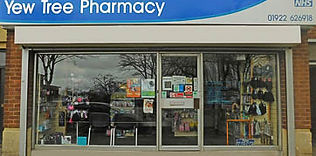Coronavirus alert: Rare syndrome seen in UK children
- Apr 28, 2020
- 3 min read

NHS doctors have been warned to look out for a rare but dangerous reaction in children that may be linked to coronavirus infection.
An urgent alert sent out to GPs said that intensive care departments in London and other parts of the UK have been treating severely sick children with unusual symptoms.
This includes "multi-system inflammation" with flu-like symptoms.
Some, but not all, tested positive for coronavirus.
It is unclear how many children have experienced the reaction, although the numbers will be low.
NHS England medical director Stephen Powis said they had become aware of reports of rare, severe illness in children. "It's only in the last few days that we have seen those reports. We have asked our experts to look into this as a matter of urgency."
The alert, issued by NHS England, said there was "a growing concern" that a coronavirus-related inflammatory syndrome is emerging in children in the UK or that there may be another, as yet unidentified, infection linked to these cases.
These young patients of varying ages were extremely ill. They had similar features to toxic shock syndrome, which can include a high temperature, low blood pressure, a rash and difficulty breathing.
Some also had gastrointestinal symptoms - tummy pain, vomiting or diarrhoea - and inflammation of the heart, as well as abnormal blood test results.
Experts say these are the signs you can see when the body becomes overwhelmed as it tries to fight off an infection.
The alert advises these cases need urgent treatment.
But experts stress that very few children become severely ill with coronavirus - evidence from around the world suggests they are the population least affected by the disease.
Dr Nazima Pathan, a consultant in Paediatric Intensive Care in Cambridge, said colleagues in Spain and Italy had been reporting similar cases: "Some of the children have presented with a septic shock type illness and rashes - the kind of presentation we would expect to see in toxic shock syndrome and Kawasaki disease (which affects blood vessels and the heart).
"Overall, children seem to be more resilient to serious lung infection following exposure to coronavirus, and the numbers admitted to intensive care units are relatively low."
NHS England said it knew of fewer than 20 such cases in the country where an association has been noted by clinicians. Investigations will continue, but no link has yet been established, said a spokesman.
The Royal College of Paediatrics and Child Health (RCPCH) said parents should be reassured by this, but if they are concerned about their children's health for any reason, they should seek help from a health professional.
Prof Simon Kenny, NHS national clinical director for children and young people, said: "The advice to parents remains the same: if you are worried about your child for whatever reason, contact NHS 111 or your family doctor for urgent advice, or 999 in an emergency, and if a professional tells you to go to hospital, please go to hospital."
When to seek help
Whilst coronavirus is infectious to children, it is rarely serious. If your child is unwell it is likely to be a non-coronavirus illness, rather than coronavirus itself.
The RCPCH advises parents seek urgent help (call 999 or go to A&E) if their child is:
Becoming pale, mottled and feeling abnormally cold to the touch
Has pauses in their breathing (apnoeas), has an irregular breathing pattern or starts grunting
Has severe difficulty in breathing becoming agitated or unresponsive
Is going blue round the lips
Has a fit/seizure
Becomes extremely distressed (crying inconsolably despite distraction), confused, very lethargic (difficult to wake) or unresponsive
Develops a rash that does not disappear with pressure (the 'Glass test')
Has testicular pain, especially in teenage boys









































Comments